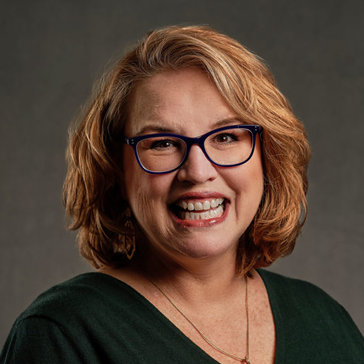We were not surprised by what happened in Charlottesville last week. Angry, yes; disappointed, sure. But white supremacy looms over every aspect of American society. Why wouldn’t it flood our streets?
At Education First, we’re proud to support many educators and leaders committed to improving opportunities for students of color. But we struggled with what we should say in response to these events, or whether we should say anything at all. Though we’ve privately mourned and as an organization we discuss issues of systemic racism frequently, we haven’t spoken out publicly as an organization about racism in our society. Over the last week, many of you have shared moving and eloquent perspectives decrying the bigotry, racism and violence we witnessed, and media commentators have thoroughly discussed the failures of our national leadership. As we saw in Boston and elsewhere across the country, many more gathered in support of racial justice.
We’ve decided to speak out now, and going forward, to ensure that we are not complicit in our silence, and because we want to help identify roles we all can play as education system leaders and advisors. After all, our public education system provides both incontrovertible evidence of white supremacy – and a promising opportunity to destroy it. A great education system can lift individuals towards a better future and equip the next generation with the will, knowledge and skills to fight for equity; a poor one sustains the conditions in which injustice can thrive.
Education leaders have begun to increase their focus on and commitment to equity of opportunity and outcomes. At Education First, we’re supporting states in their efforts to increase equitable access to great teachers. We’re prioritizing diversity in the educator workforce so more students of color have teachers with similar backgrounds who believe in them and know they can succeed. We’re supporting more rigorous academic standards and assessments to help prepare all students for college and career. We support teachers, school districts and states to understand and implement social and emotional learning competencies, especially for youth of color or marginalized youth. Internally, we’re deeply looking at our own structures so we can do a better job recognizing and valuing all identities while practicing anti-racism internally.
But we need to do more. And while Education First will continue to pursue work and partnerships to support this goal, we also must acknowledge that this is bigger than us, our partners or even the field of public education as a whole. So let us be clear: Systemic racism is real, ubiquitous and insidious.
The irony is that even the attention given to Charlottesville is evidence of white supremacy. Heather Heyer, the anti-racist protester who was killed in a senseless act of domestic terrorism, deserves all of the praise and honor she has received for her courage and sacrifice. But the reaction would have likely been different if she were a person of color. White supremacy has killed at least 487 black people in America since 2016 through police violence alone. Where is the national outrage from white people? If we’ve finally hit rock bottom (let us hope we have), now we must turn our outrage to action.
One of the most odious manifestations of white privilege—especially among those who claim to support racial equity, including education advocates—is the impulse to explain away racism to avoid discomfort. And that ignorance and complacency blocks progress. As Dr. Martin Luther King, Jr., wrote in his Letter from Birmingham Jail, “Shallow understanding from people of goodwill is more frustrating than absolute misunderstanding from people of ill will.”
But what happened in Charlottesville smacked us in the face; there was no room to construct a convenient “shallow misunderstanding.” The white supremacy was overt and undeniable, flaunted with chants and torches and adorned with a label—a swastika—with which we’re all familiar. It was a wake-up call for many about the continued reign of white supremacy in this country.
But it is also unequivocal proof of the continuing moral failure of Dr. King’s “white moderate” in America. Besides the well-documented racial disparities in education with which readers of this blog are all too familiar, look at gaps in wealth. Look at the legacy of housing redlining. Look at incarceration rates of nonviolent offenders and the disparities in sentencing guidelines that send too many African-American men to prison. Look at police violence.
White moderates and liberals have blanketed ourselves in convenience. We have chosen to accept the most pernicious lie of all: that in America, people of all races are treated equally. In recent days, many have reacted with cries that “this is not My America.” But that is precisely wrong. This is your America. And it always has been.
So where do we go from here? All white people—especially those of us working to improve outcomes for people of color—need to stop passing the buck. While we may not outwardly support white supremacy, we reap its benefits every moment of every day without complaint—and are thus complicit in its persistence. There is much difficult work to do to come to terms with and rectify the injustice we have created and now sustain. We pray that we finally have enough proof to move forward.
This is not an easy set of messages to write. But it’s the position that reflects our values. Nor is this the end of the conversation for us; it is the beginning. In the coming weeks and months you will be hearing more from Education First about what individuals on our team and the firm as a whole are thinking, feeling and doing. We don’t know exactly where we’re headed. But we invite you to come along. We invite you to share your stories and your perspectives with us as well @ed1stconsulting or directly by phone or email to any Ed Firster.
Forward together,
Jenn, Susan, Kelly, John and Bill

